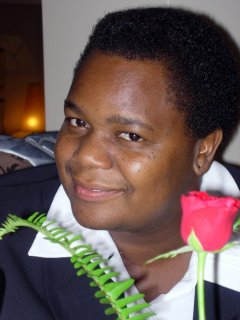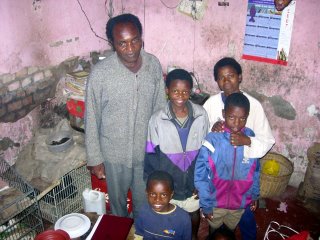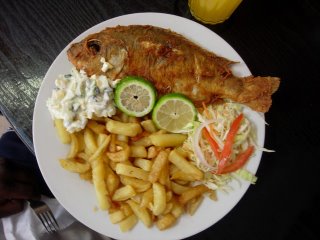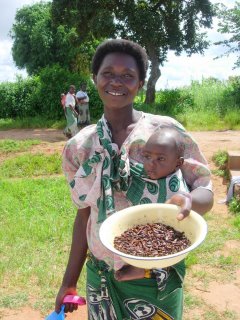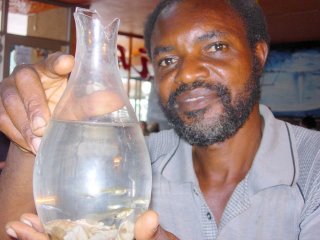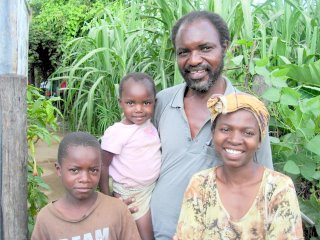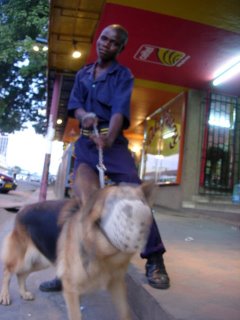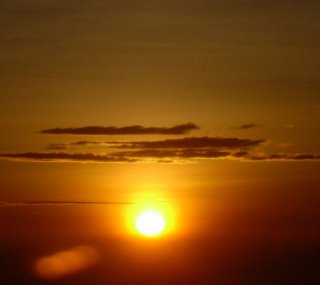I meant to write six or seventeen blogs since I returned from Malawi, but when I got home, I hit the road running. Before I knew it, I was off to Azerbaijan for what was supposed to be a mostly evening training assignment.
Dream on. I sort of volunteered to be the cameraman and trainer of producers during the day -- and then I'd teach the classes in the evening.
Maybe I could have stayed up late at night to write about all of the interesting sights that I visited.
 But I didn't get a chance to visit any sights. The students were
But I didn't get a chance to visit any sights. The students were fantastic and enthusiastic -- so enthusiastic that they volunteered to work on weekends and even on Muslim holidays. I couldn't let them down, could I?
fantastic and enthusiastic -- so enthusiastic that they volunteered to work on weekends and even on Muslim holidays. I couldn't let them down, could I?If I had taken the time, I would have written about some of my observations -- things I noticed while I was going from story to story with the television camera.
For example, I would have commented on how, in most countries, I visit, it's common to see women holding onto each other as they walk in public. I was impressed that in Azerbaijan, even the men and boys felt secure enough to hold onto each other in public.
 In think that one of the reasons I don't post things as frequently as possible is I can never figure out how to put photographs on the blog and still control the text flow.
In think that one of the reasons I don't post things as frequently as possible is I can never figure out how to put photographs on the blog and still control the text flow.If I would have taken the time to post the blogs that I wanted to, I would have written an entire piece about my best friend from clear back in the days of the Marlindo Lanes Junior Traveling League (that would be bowling) when we were in high school. Joe Veraldi was two years behind me.
 When I graduated from high school, joined the Army and went to Vietnam, Joe wrote to me. By the time I came home, Joe had graduated and joined the Air Force and became a loadmaster on a C141 Starlifter. He had always dreamed of flying.
When I graduated from high school, joined the Army and went to Vietnam, Joe wrote to me. By the time I came home, Joe had graduated and joined the Air Force and became a loadmaster on a C141 Starlifter. He had always dreamed of flying.I was envious. He was able to travel all over the world in the giant transport jet. He made a gazillion trips into Vietnam. He was responsible for every bullet, mortar round, jeep and Howitzer that he and his crew delivered into the war zone.
He stayed in the Air Force for eight years, I think, and then decided to return to civilian life.
Eventually, he'd end up in the San Diego area with his wive and three boys. He worked for himself as a building contractor.
Over the years, neither of us spoke much about our experiences in Vietnam. We were OK. Both of us recall that we weren't very sympathetic to what we called "crybaby Vietnam veterans." Neither of us had been drinkers, smokers or drug users, and we survived quite well, thank you.
Within the past decade, what were once occasional combat nightmares became nightly events. And there are a lot of other things happening.
Thank God the Veterans Administration was there to help me in so many ways.
Recently, my friend Joe, told me that he was going in to the V.A. to talk with someone about his nightmares. After all these years, the things he saw and experienced during the Vietnam war were catching up with him. As I mentioned, he had to sign for all of the cargo he delivered to Vietnam. He never talked about the cargo he had to sign for when his plane would leave Vietnem. Joe had to sign for the bodies of probably thousands of young soldiers, sailors, Marines and airmen.
Today, Joe can't get the thoughts out of his head. Joe was also there in 1975 when Saigon fell to the North Vietnamese. He brought out thousands of Americans and Vietnamese.
We talked about our expiences for the first time a couple of weeks ago. We were amazed that our lives had been parallel in so many ways -- anger, nightmares, tears at inappropriate times, panic attacks, flashbacks and much more. Both of us gravitated toward working for ourselves and we're both uncomfortable in crowds.
If only we could have known years ago what was happening to us.
There were so many more things that I wanted to write about, but they will have to wait for another time.















